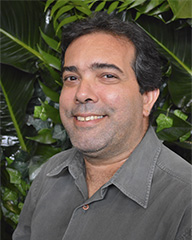
Beto Mesquita
Beto Mesquita is a Forest Engineer and has a PhD in Environmental and Forestry Sciences from the Federal Rural University of Rio de Janeiro (UFRRJ), and a Master in Biodiversity Conservation from CATIE (Costa Rica). He has worked for 30 years in non-profit organisations, having held leadership positions in regional, national and international institutions. He is currently Director of Forests and Public Policies at BVRio, an institution specialised in promoting market instruments that favour the implementation of environmental laws, and technical coordinator of the CICLOS Institute for Sustainability and Citizenship, which he helped found in 2018. His main areas of expertise are planning and management for sustainability, protected areas, forest restoration and multi-stakeholder initiatives. He is the author of three books and dozens of chapters and articles on these topics. He is a member of the Strategic Group of the Coalition Brazil Climate, Forests and Agriculture, of the Coordination Council of the Diálogo Florestal and of the Board of Directors of the association “O Eco”, responsible for the largest environmental news portal in Brazil. He also chairs the deliberative councils of the Transcarioca Trail Movement and of the Conservation Strategy Fund-Brazil.
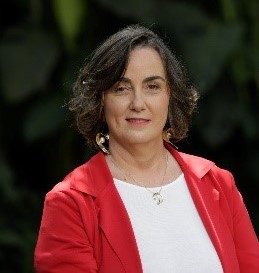
Denise Hills
She was the first woman to chair the Brazil Network of the UN Global Compact in 2015, where she remained as a Board Member until 2023; she held the positions of Chair for Latin America (2013-2015) of the UN Environment Programme and Financial Institutions (UNEP FI) and Global Co-Chair (2015-2017). She was a special guest at the Framework for Investing in the Sustainable Development Goals (SDGs) and was recognised by the UN Global Compact as SDG Pioneer 2022 in sustainable finance, a reference in the dissemination of the SDGs and the 2030 agenda, among more than 100 global leaders.
She has a degree in Business Administration and specialises in Economics, Risk Management, Integrated Management and Leadership for Sustainability.
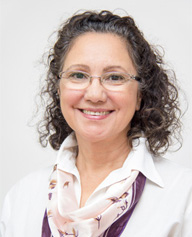
Fátima Tosini
Fátima Tosini holds Master and PhD degrees in Economic Development – Space and Environment, from the Institute of Economics at the State University of Campinas (UNICAMP), with researches on Social and Environmental Risk Management in Financial Institutions (Master Thesis, which resulted in a pioneer book on the subject) and on the role of self-regulation and financial regulation in socio-environmental matters (PhD). She was an Analyst at the Central Bank of Brazil between 1998 and 2014, where she worked in direct and indirect inspection of banking institutions and credit cooperatives, collaborated and coordinated several projects focused on supervision, governance, Social and Environmental Responsibility, and Financial Education. She has extensive experience in training and consulting on Social and Environmental Responsibility for banking institutions, as well as in higher education.
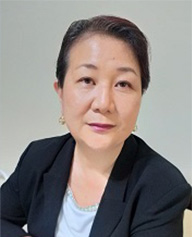
Glaucia Terreo
Glaucia Terreo is a professional with over 20 years’ experience in ESG/Sustainability management tools. She led GRI Brasil – Global Reporting Initiative for 15 years, one of the main functions of which was to disseminate the GRI Standards for ESG Reporting in order to strengthen transparency in the country. She was the creator and responsible for the research “ESG as a Strategy for Business Perenniality in the 21st Century” and the publication of the “Guide for Sustainability Committees”. From 2001 to 2006, she worked at the Ethos Institute on the research and revision of the Ethos Social Responsibility Indicators. She worked for 12 months at Walk4Good on annual reports with ESG information and strategic counselling. She was an instructor on the ESG in Practice course and coordinator of the ESG Committees course at the Brazilian Institute of Corporate Governance (IBGC). She is a member of the Advisory Board of the 2030 Observatory of the Global Compact Network in Brazil. She currently works as a Consultant/Researcher at ABC Consultores. Glaucia has a degree in Public Relations from the Cásper Libero Foundation and specialisations in Social Economics (PUC-SP) and Corporate Social Responsibility (FGV).
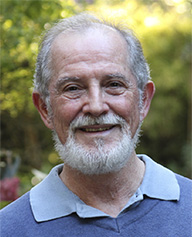
Julio Grillo
Julio has Bachelor degrees in Civil Engineering (PUC-MG, 1976) and in Sanitary Engineering (UFMG, 1976) and post-graduate degrees in Economic Engineering (1979) and in Financial Administration (1985) from Fundação Dom Cabral, and has attended more than 40 courses in the area of information technology, in Brazil and at ULB (Université Libre de Bruxelles, 1979). Julio has more than 40 years of professional experience in the development of large scale information systems for mining, steel industry, wire drawing, civil engineering – dams, metallic structures, geographic information and public transport areas. He has more than 30 years of activism in defence of the environment, more than 20 years of experience in the State Environmental Councils in Minas Gerais and is a former head of IBAMA (federal environmental agency) in the same State. He was founder of the NGO PROMUTUCA and is a board member of the Permanent Forum of São Francisco (a large Brazilian river that crosses 7 States).
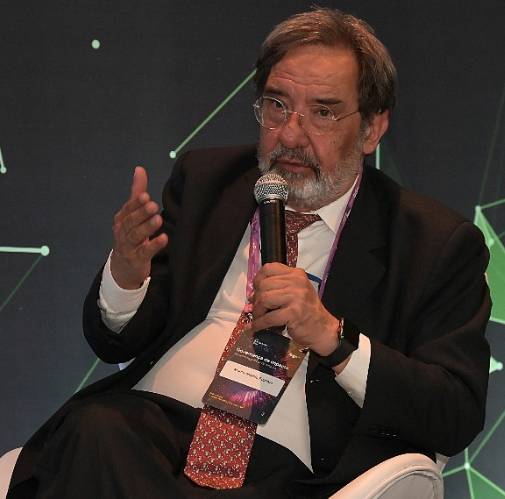
Marco Antonio Fujihara
Agronomist with more than 40 years’ experience in the forestry and agricultural sectors, he has been developing business qualification projects within the parameters recommended by the Kyoto Protocol since 1998 and currently on the basis of the Paris Agreements and voluntary markets, as well as jurisdictional markets for the energy and forestry sectors, etc. He was coordinator of Forest Products for MERCOSUL, Superintendent of the Brazilian Society of Forestry, Natural Resources Coordinator at BRACELPA (National Association of Pulp and Paper Manufacturers), Director of Renewable Natural Resources at IBAMA in Brasilia, and Executive Coordinator of the FBMC (Brazilian Climate Change Forum). He has completed university extension courses in the Economics of Agricultural and Forestry Companies, Politics and Strategy and Climate Change at Harvard University. He worked with the IPCC from 2002 to 2009 as a WG2 reviewer, was an advisor to the CIF – Climate Investment Fund (World Bank and MDBs) and key–man of the Brazil Sustainability Fund of the BNDES Clean Development Programme, as well as the Performa/Key Fund for Technological Innovation for Sustainability. He has worked with World Bank and IDB on the development of Socio-Environmental Impact Investment Funds (InovaCapital Fund of the Inter-American Development Bank). He was Sustainability Director of PriceWaterhouseCoopers (PWC) in Brazil with operations in Latin America and Director of Key Associados, with a specific focus on Carbon Finance and corporate sustainability. He is currently the owner and Director of RADCE, a consultancy company focused on green and sustainable investment management, and serves on various company Councils, as well as works on innovative solutions at Techsocial, SINAI and INFRAPAR, where he develops digital platforms in sustainable finance with the help of credit and venture capital instruments. He coordinates the Payments for Environmental Services Programme at TFA/WEF – World Economic Forum in MATOPIBA, as well as the global environmental services platform at TNC (The Nature Conservancy), and is an advisor to CDP (Carbon Disclosure Project) LatAm and ICLEI in LatAm – Local Governments for Sustainability. He is also a guest lecturer at FIA (Instituto de Administração) – Sustainability and Compliance and at IBGC (Brazilian Instituteof Corporative Governance) – ESG in Practice. Finally, he is a member of the Agribusiness Group at PENSA/FEA/USP.
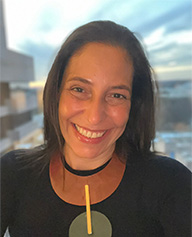
Maria Netto - on leave to become Executive Director of the Institute for Climate and Society - iCS
Maria Netto holds a Master’s degree in Economics from the Geneva Institute for Advanced International Development Studies and is currently head of the Development Institutions Department at the Inter-American Development Bank (IDB), where she has a career of over 12 years as a leading expert in capital markets and financial institutions and was responsible for overseeing programs for innovative financing strategies with local financial institutions and capital markets to promote the productivity of micro, small and medium enterprises, private sector investments in sustainable infrastructure, and low carbon and climate change resilient projects in the Latin American and Caribbean region. She also worked at the United Nations Development Programme (UNDP), where she was responsible for overseeing global projects to help countries assess investment and financial flows and policy options to integrate green business across different sectors and economic activities. From 2021 to 2022, she was head of the Financial Institutions and Markets Division at the New Development Bank (the BRICS bank), leading green and sustainable private sector financial resource mobilisation, public and private financial intermediation operations and development of financial solutions and innovation for sustainable infrastructure investments. Maria Netto worked for over 10 years at the Secretariat of the United Nations Framework Convention on Climate Change (UNFCCC), where, among other roles, she was responsible for leading the institution’s work on bilateral and multilateral financial cooperation, for the assessments and monitoring of investments and financial flows to address climate change and the development of carbon market mechanisms under the Kyoto Protocol.
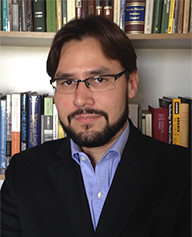
Raoni Rajão - on leave to take up the post of Director in the Extraordinary Secretariat for Combating Deforestation, in the Ministry of the Environment and Climate Change
Raoni Rajão is Associate Professor of Environmental Management and Social Studies of Science and Technology at the Production Engineering Department of Federal University of Minas Gerais (UFMG) and affiliated member of the Brazilian Academy of Sciences (ABC). In the academic year of 2022/23, Prof. Rajão will also be a Research Fellow at the Wilson Center in Washington, D.C. He is a professor in the Postgraduate Programs in Production Engineering and Environmental Modelling and Analysis at the same institution. He also acts as co-advisor in the Postgraduate Programs in Sustainable Development at the University of Brasilia (UnB), Environmental Policy and Economics at the University of Bonn (Germany), and Forest and Nature Conservation at Wageningen Universiteit (Netherlands). Prof. Rajão has been a regular visiting professor at different institutions such as Lancaster University (UK), Universität Bremen (Germany), Université Paris 1 Panthéon-Sorbonne. He holds a M.Sc. in Computer Science from Universitá degli Studi Milano-Bicocca (Italy) and a Ph.D. in Organisation, Work and Technology from Lancaster University. Since his Masters, he has been dedicated to the study of the relationship between technology, science and public policies, with emphasis on the evaluation of policies to control deforestation and payment for environmental services. Rajão works closely with the State governments of Pará and Minas Gerais leading the development of SeloVerde and CAR 2.0 in these States. His group also has technical partnerships with the Federal Prosecutors, the Brazilian Army and the Federal Audit Court, and has participated in the construction of public policies in the Ministries of Economy, Agriculture, Environment and Science and Technology in projects supported by the World Bank, UN, GIZ and NICFI/NORAD. He has also published books and scientific articles in high impact journals such as Science and Nature Climate Change.
